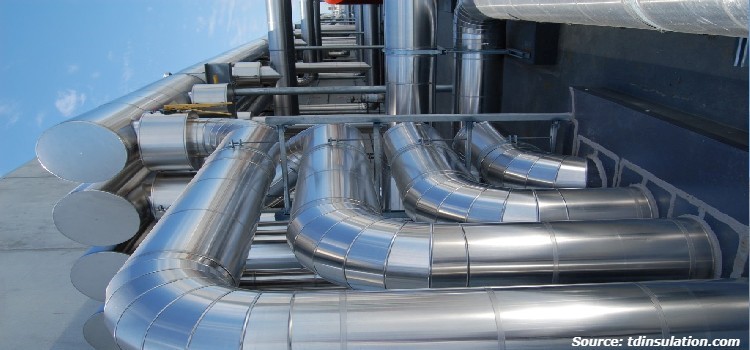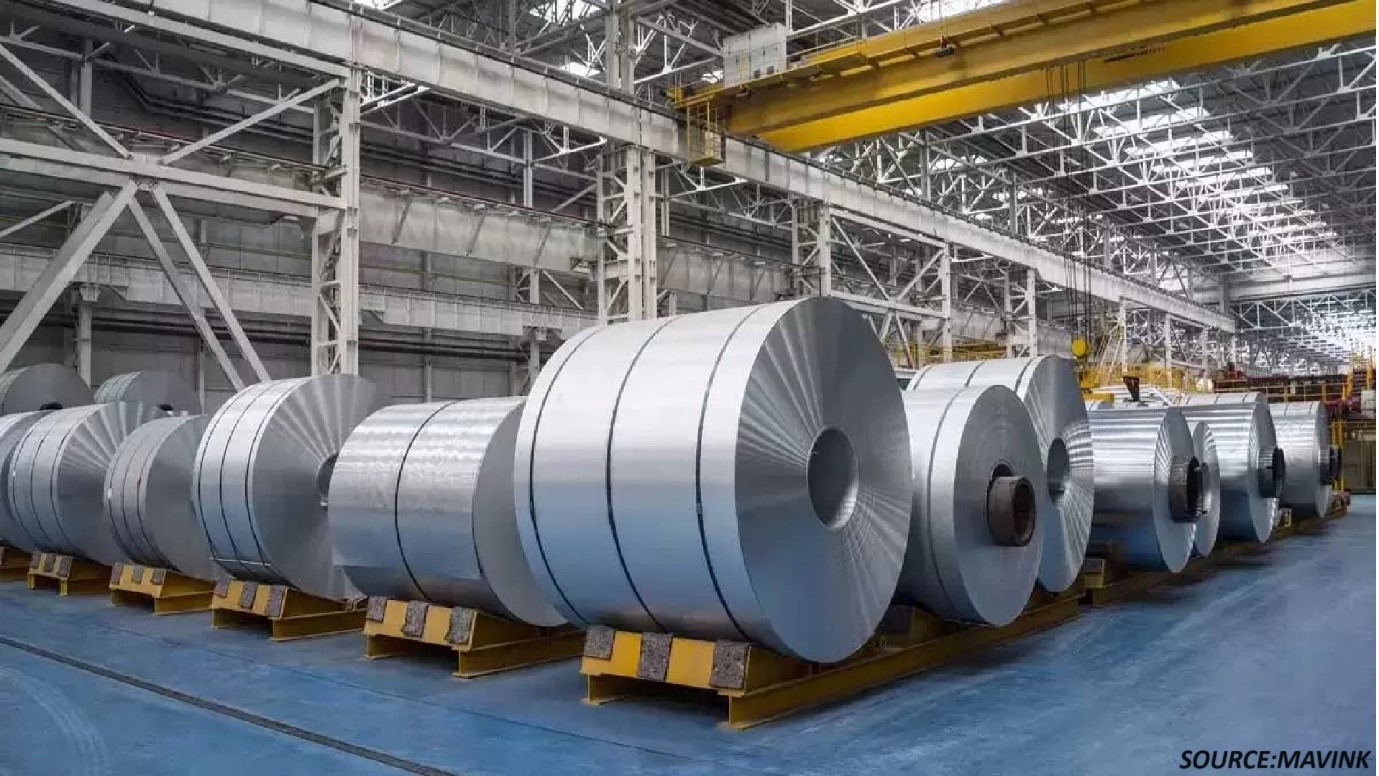
Advanced Phase Change Materials Market by Type (Organic, Inorganic, and Bio-Based), and by Application (Building & Construction, Energy Storage, Cold Chain & Packaging, Heating Ventilation, and Air Conditioning (HVAC), Shipping & Transportation, Electronics, Textiles, and Others)– Global Opportunity Analysis and Industry Forecast 2024-2030
Industry: Materials and Chemical | Publish Date: 03-Feb-2024 | No of Pages: 244 | No. of Tables: 135 | No. of Figures: 105 | Format: PDF | Report Code : N/A
Market Overview
The global Advanced Phase Change Materials Market size was valued at USD 1.98 billion in 2023 and is predicted to reach USD 5.02 billion by 2030, with a CAGR of 14.2% from 2024 to 2030. Advanced Phase Change Materials (PCMs) are innovative substances engineered to store and release thermal energy during phase transitions, such as from solid to liquid and vice versa. Unlike traditional PCMs, these advanced materials offer superior thermal properties, increased energy storage capacity, and enhanced stability across a broader range of temperatures.
These materials find applications in various industries, including construction, electronics, textiles, and energy storage. The utilization of advanced PCMs contributes to the development of more efficient and sustainable thermal management systems. These materials play a pivotal role in enhancing energy storage and thermal regulation in various applications, promoting environmentally friendly and energy-efficient solutions.
Increasing Investment in Renewable Energy Sector drives the Market Growth
The advanced phase change materials market is driven by the global shift towards renewable energy sources. As per the latest report published by the International Energy Agency, Global investment in clean energy is on course to rise to USD 1.7 trillion in 2023, rising by 24% between 2021 and 2023. This increased investment in renewable energy projects has positioned PCMs as integral components in energy storage applications.
PCMs contribute to enhancing the efficiency and stability of renewable energy systems, particularly in applications such as solar and wind power. As the demand for reliable and efficient energy storage solutions continues to rise, the advanced phase change materials market is poised to play a crucial role in supporting the expansion of renewable energy initiatives worldwide.
Rising Government Initiatives to Reduce Carbon Emission Boosts the Market Growth
The advanced phase change materials market is experiencing substantial growth, driven by the increasing government initiatives aimed at reducing carbon emissions. Governments worldwide are implementing stringent regulations and policies to address climate change, emphasizing the need for sustainable practices across industries. Countries, including the U.S., Germany, and China, among others, are adopting various policies to address environmental concerns and minimize carbon emissions.
Initiatives such as the Clean Energy Standards of the U.S., Climate Action Programme 2030 the new Climate Action Act (Klimaschutzgesetz) in Germany, and China's High-Quality Development (HQD) program highlight a global commitment to combating climate change. These policies aim to regulate and encourage industries towards cleaner and sustainable practices, contributing to a collective effort to reduce carbon emissions on a national and global scale.
As a result, businesses are adopting advanced PCMs as a key component of their strategies to enhance energy efficiency and minimize environmental impact. The focus on green technologies and sustainable solutions, prompted by these initiatives, is a pivotal factor propelling the expansion of the advanced PCM market.
High Initial Cost and Compatibility Issues Restrain Market Growth
The major factor restraining the growth of the advanced phase change materials market is the high initial costs associated with the development and implementation. The substantial investment required for research, development, and manufacturing processes can pose challenges for companies, particularly smaller enterprises with budget constraints. Additionally, concerns related to the compatibility of these materials with existing infrastructure and systems may hinder their widespread adoption, further restraining the growth of the market.
Advancement in Encapsulation Technologies Creates Market Opportunities
Advancements in encapsulation technologies, such as spray, freeze, and vacuum-drying, represent a pivotal advancement in the evolution of phase change materials (PCMs). These technologies enable the widespread utilization of PCMs with various melting points and forms, ranging from fibers to raw powder. This transformative capability enhances the applicability of PCMs across diverse industries, creating ample growth opportunities for the advanced phase change materials sector in the coming years. As industries explore and integrate these advanced encapsulation technologies, the transformative potential of PCMs becomes increasingly evident, shaping the future of materials science and thermal management.
Europe Dominates the Advanced Phase Change Material Market
Increasing government initiatives across Europe, specifically targeting carbon emissions reduction, coupled with the growing adoption of renewable energy sources in buildings and infrastructures, are propelling the expansion of the advanced phase change material (PCM) market in the region. As per the latest report published by the Renewable Energy Institute, the German government amended its Buildings Energy Act (GEG), effective from January 2024, mandating that all new buildings in Germany must meet energy-efficient standards.
The legislation requires new heating systems installed after January 2024 to aim for a 65% renewable energy contribution and promotes the replacement of older gas heating systems with environmentally friendly alternatives. This legislative shift reflects Germany's commitment to sustainable and energy-efficient practices in the construction and heating sectors. With European nations prioritizing the shift towards cleaner and more energy-efficient practices, there is a growing demand for PCM solutions that enhance energy performance and contribute to decreased environmental impact, thereby further accelerating the market's expansion.
The increasing emphasis on energy efficiency initiatives across Europe, coupled with substantial investments in renewable energy and electric vehicles, is a significant driver for the growth of the advanced phase change market in this region. As per the latest report from the International Energy Agency, the French government has revealed ambitious investment plans in the energy sector. The announcement includes a substantial USD 8.7 billion investment, with USD 2 billion allocated to hydrogen projects and USD 1.1 billion earmarked for the development of six new nuclear reactors by 2030.
Additionally, the government has committed USD 4.5 billion to the transportation sector intending to produce two million electric and plug-in hybrid electric vehicles. As Europe intensifies its efforts to achieve environmental goals and reduce carbon emissions, the advanced phase change market is poised to thrive, offering innovative solutions that contribute to the region's broader energy efficiency objectives.
North America is Expected to Show Steady Growth in the Advanced PCM Market
The growth of the advanced phase change material (PCM) market in North America is propelled by the rising investments in the renewable energy sector within the region. According to the most recent report from the International Energy Agency, the United States invested a substantial USD 97 billion towards the clean and renewable energy sector in 2022. This surge in investment in renewable energy in North America is driven by a collective effort to transition towards cleaner and more sustainable energy sources.
Governments, businesses, and individuals are recognizing the environmental and economic benefits of renewable energy, leading to increased funding for clean energy projects. This shift is fueled by a desire to reduce carbon emissions, combat climate change, and create a more resilient and sustainable energy infrastructure for the future. As a result, the advanced phase change material (PCM) market in the region is experiencing growth due to its integral role in enhancing energy efficiency and supporting sustainable practices in various applications.
Moreover, the presence of key market players such as Cryopak, Honeywell International, Inc., and Honeywell International, Inc. among others plays a major role in the growth of the advanced phase change material market in this region. Their continuous research and development (R&D) initiatives, coupled with substantial investments, contribute to the advancement of technologies and the introduction of cutting-edge solutions.
For instance, in July 2021, Cryopak introduced and launched a new product line of polyurethane packaging called the PUR-Form. The launch of Cryopak's PUR-Forma is specifically designed for the secure delivery of pharmaceuticals and other temperature-sensitive products
Competitive Landscape
The advanced phase change material market comprises various companies including Cold Chain Technologies, Inc., Croda International Plc., Microtek Laboratories, Inc., Sasol Limited, PureTemp LLC., Henkel AG & Company KGAA, Cryopak, BASF SE, CIAT Group, and Honeywell Electronic Materials, Inc., among others. These companies are adopting various strategies such as product launches to remain dominant in the global advanced phase change material industry.
For instance, in December 2023, BASF expanded its business operations in the U.S. by enhancing its capacity for the production of specialty amines, specifically focusing on polyetheramines and amine catalysts. This strategic expansion was aimed towards meeting the growing demand for these essential components in various industries. The increased production capacity is aimed at supporting applications in epoxy and polyurea formulations, particularly in sectors such as wind, electrical, composites, adhesives, and flooring, contributing towards improved temperature control, durability, and sustainability.
Advanced PCM Market Key Segments
By Type
-
Organic
-
Inorganic
-
Bio-Based
By Application
-
Building & Construction
-
Energy Storage
-
Cold Chain & Packaging
-
HVAC
-
Shipping & Transportation
-
Electronics
-
Textiles
-
Others
By Region
-
North America
-
The U.S.
-
Canada
-
Mexico
-
-
Europe
-
The U.K.
-
Germany
-
France
-
Italy
-
Spain
-
Denmark
-
Netherlands
-
Finland
-
Sweden
-
Norway
-
Russia
-
Rest of Europe
-
-
Asia-Pacific
-
China
-
Japan
-
India
-
South Korea
-
Australia
-
Indonesia
-
Singapore
-
Taiwan
-
Thailand
-
Rest of Asia-Pacific
-
-
Rest of the World (RoW)
-
Latin America
-
Middle East
-
Africa
-
REPORT SCOPE AND SEGMENTATION:
|
Parameters |
Details |
|
Market Size in 2023 |
USD 1.98 Billion |
|
Revenue Forecast in 2030 |
USD 5.02 Billion |
|
Growth Rate |
CAGR of 14.2% from 2024 to 2030 |
|
Analysis Period |
2023–2030 |
|
Base Year Considered |
2023 |
|
Forecast Period |
2024–2030 |
|
Market Size Estimation |
Billion (USD) |
|
Growth Factors |
|
|
Countries Covered |
28 |
|
Companies Profiled |
10 |
|
Market Share |
Available for 10 companies |
|
Customization Scope |
Free customization (equivalent up to 80 working hours of analysts) after purchase. Addition or alteration to country, regional, and segment scope. |
|
Pricing and Purchase Options |
Avail customized purchase options to meet your exact research needs. |
KEY PLAYERS
-
Cold Chain Technologies Inc.
-
Croda International Plc.
-
Microtek Laboratories Inc.
-
Sasol Limited
-
PureTemp LLC.
-
Henkel AG & Company KGAA
-
Cryopak
-
BASF SE
-
CIAT Group
-
Honeywell Electronic Materials Inc.




 Speak to Our Analyst
Speak to Our Analyst


































